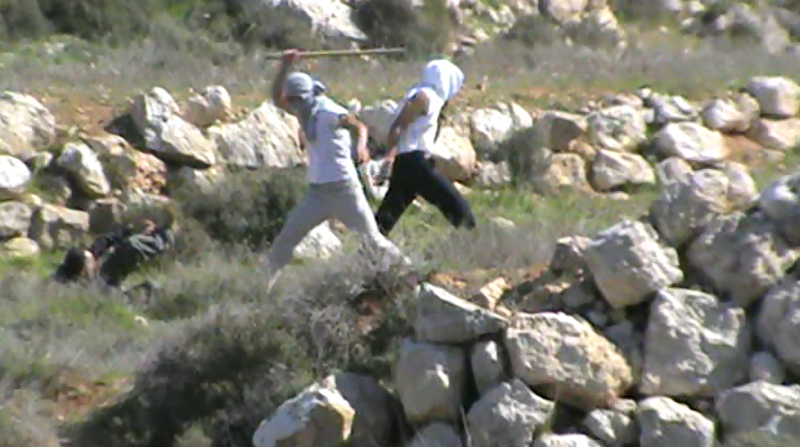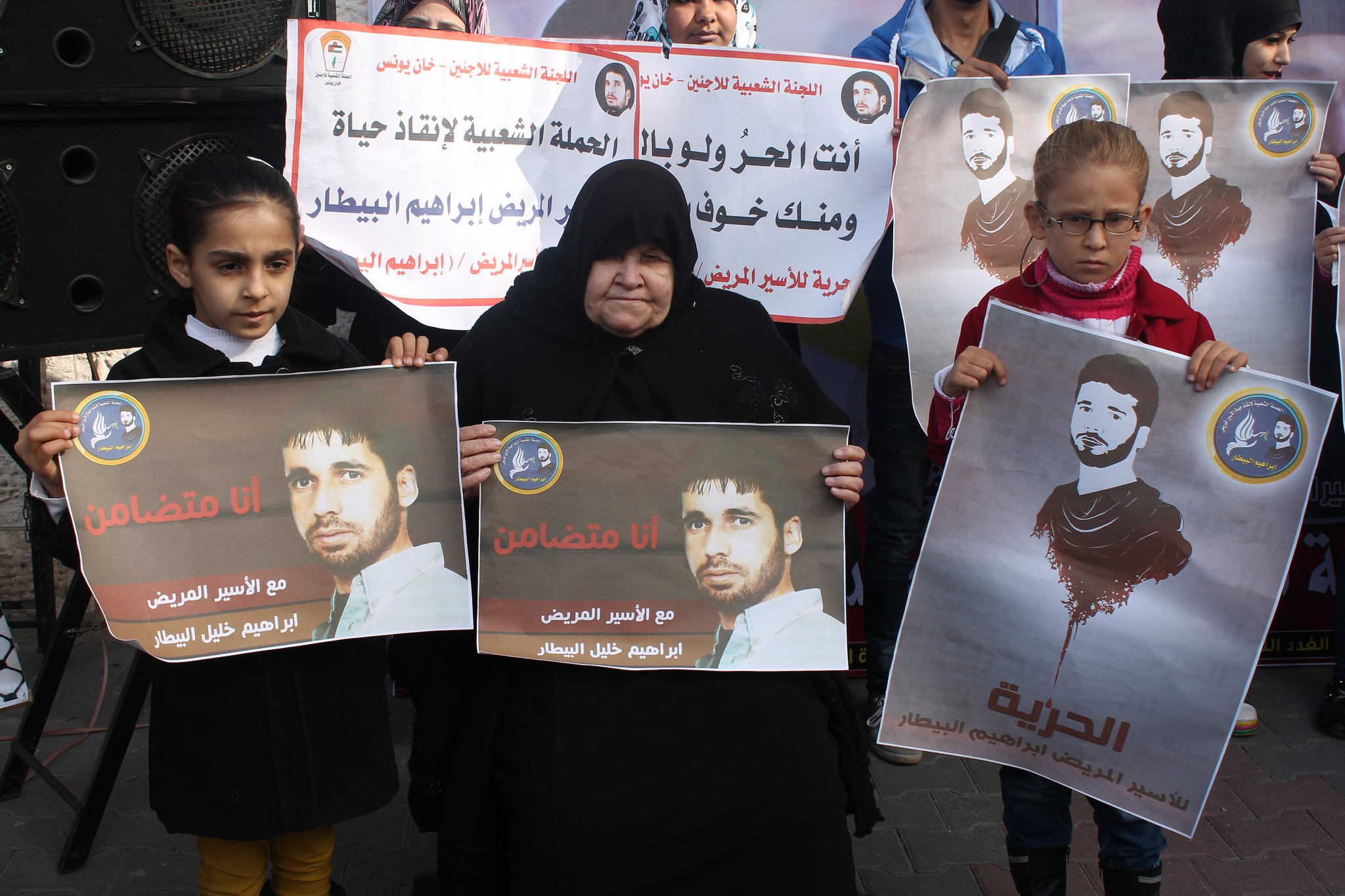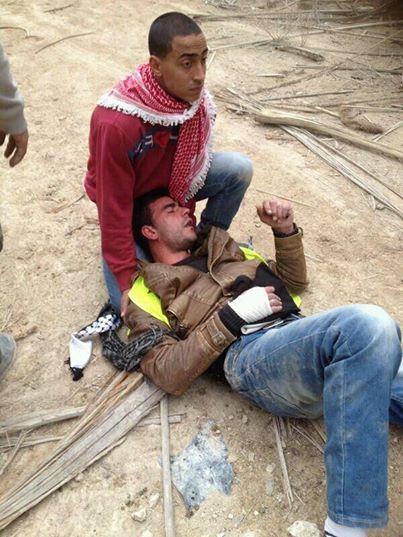Category: In the Media
-
Settlers attack Palestinian shepherds, Israeli activists and internationals during nonviolent action in South Hebron Hills
8th February 2014 | Operation Dove | At Tuwani, South Hebron Hills, Occupied Palestine On the morning of February 8, 2014, during a nonviolent action claiming the right of Palestinians to access their own land, a group of settlers from the illegal outpost of Mitzpe Eshtamoa attacked Palestinians, Israeli activists and internationals with stones and sticks,…
-
Gaza rallies in support of critically ill prisoner
9th February 2014 | The Electronic Intifada, Joe Catron | Gaza City, Occupied Palestine Sit-ins to support Palestinian prisoners — held every week since 1995 in the courtyard of the International Committee of the Red Cross’ Gaza office — have recently been followed by rallies outside for Ibrahim Bitar, a sick detainee in Israel’s Nafha prison. “We’ve garnered internal support for my…
-
Israeli forces raid Ein Hijleh as villagers remain steadfast
4th February 2014 | Popular Struggle Coordinating Committee | Jordan Valley, Occupied Palestine Large amounts of Israeli forces and Border Police have made several attempts to raid the reclaimed village of Ein Hijleh and in return the villagers stopped their forced advancement into the center of the village. There were many cases of teargas suffocation…



